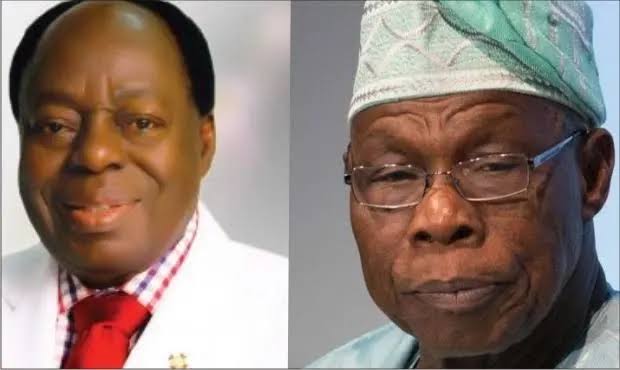A leaked U.S. diplomatic cable, published by WikiLeaks, has unveiled allegations of bribery involving Nigeria’s former President Olusegun Obasanjo and renowned lawyer Chief Afe Babalola.
The claims center around a 2004 Court of Appeal decision that reportedly favored Boni Haruna, the then-governor of Adamawa State, allowing him to remain in office despite initial legal challenges.
The allegations, highlighted by former presidential candidate Omoyele Sowore, suggest that Obasanjo and Babalola orchestrated payments to judges to sway the court’s ruling.
According to the leaked cable, each of the five judges involved in the case allegedly received 30 million naira (approximately $225,000).
A lawyer from Babalola’s legal team reportedly admitted to witnessing the money being distributed, describing such practices as a routine method for influencing significant cases in the country.
The cable, authored by Russells J. Hanks, an acting political counsellor for the U.S., noted stark contradictions between the appeal court’s judgment and that of the election tribunal, raising suspicions of external interference.
While the tribunal found compelling evidence of electoral malpractice and nullified Haruna’s election, the appeals court dismissed this evidence as insufficient and scandalous.
This revelation comes amid public backlash following the arrest of human rights lawyer Dele Farotimi.
Farotimi, who has criticized Afe Babalola in his book Nigeria and Its Criminal Justice System, was recently arraigned in Ekiti Magistrate Court on defamation charges.
Denied bail, he remains in custody until December 10, facing 16 charges that he has consistently denied.
The leaked document underscores ongoing concerns about judicial integrity in Nigeria.
The cable concludes that while appeals court decisions are final and cannot be challenged further, the stark disparities between the tribunal’s and appeals court’s rulings suggest that factors beyond the law may have influenced the outcome.
WikiLeaks, an organization renowned for disclosing confidential documents, has released numerous sensitive cables exposing corruption and political controversies worldwide.
This latest revelation adds to its extensive catalogue of leaked diplomatic communications.


